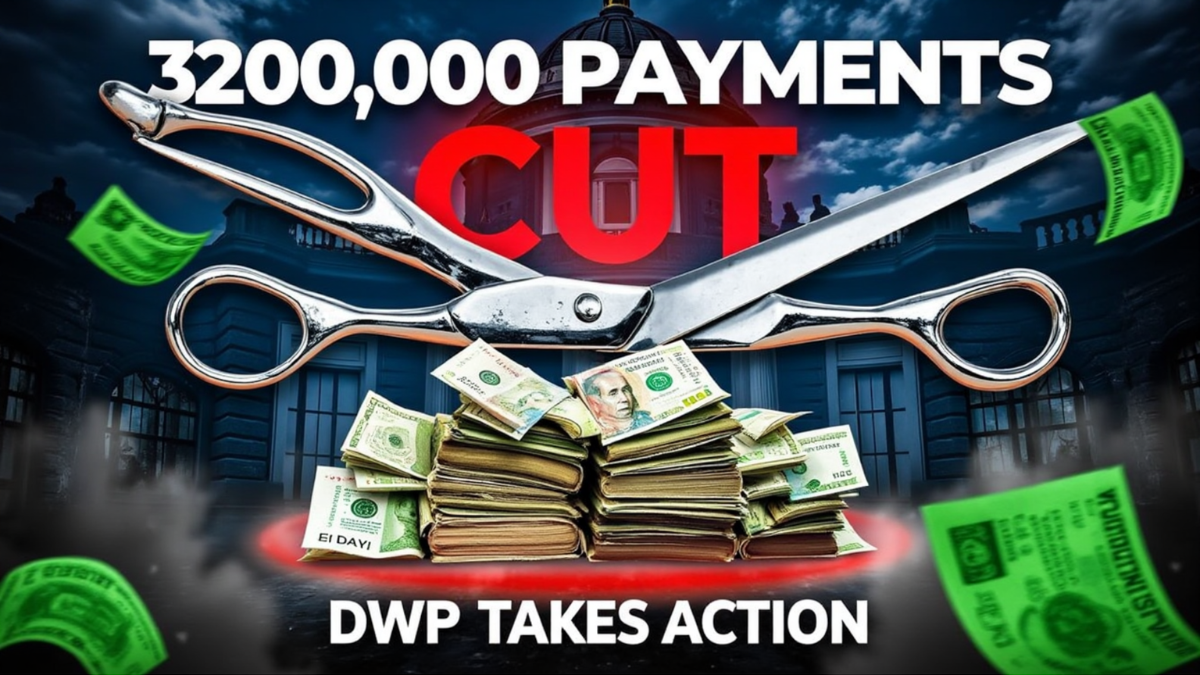Changes to Universal Credit: Know why benefit payments of 3.2 lakh people were stopped
The Department for Work and Pensions (DWP) has stopped benefit payments of 3,20,000 people because they did not follow the instructions for transition to Universal Credit (UC). The move is part of the government’s effort to create a simpler and centralized welfare system by ending six “legacy benefits”.
Let’s understand the process of this change, the reasons for stopping payments and measures to prevent it.
Why changes in Universal Credit?
Universal Credit is replacing six legacy benefits to simplify the benefits system and provide support to all eligible individuals in the form of a single monthly payment.
The six benefits that are being abolished are:
- Working Tax Credit
- Child Tax Credit
- Income Support
- Income-based Jobseeker’s Allowance (JSA)
- Income-related Employment and Support Allowance (ESA)
- Housing Benefit
According to DWP figures:
- 8,75,000 people have successfully transitioned to Universal Credit.
- 3,18,000 individuals had their benefits abolished because they did not apply in time.
- 1,64,000 cases are still in process.
Why are payments stopped?

Of the 320,000 cases where payments were stopped, most beneficiaries failed to act on a “migration notice” sent by the DWP. This notice is part of the “managed migration” process.
Important points:
- Beneficiaries have at least three months and one day to apply after receiving a migration notice.
- Legacy benefits are terminated when the deadline is reached.
- Beneficiaries of Working Tax Credit and Child Tax Credit are most affected by the change, numbering around 220,000.
How to save benefits?
If you have received a migration notice, follow these steps:
1. Apply for Universal Credit on time
- As soon as you receive your migration notice, apply for Universal Credit immediately.
- Applying on time can not only allow you to continue your financial support, but also receive Transitional Protection, which protects against Financial loss during the transition.
2. Get help
- If you’re having problems with the application process or need more time, contact the Universal Credit Helpline (0800 169 0328).
3. Open a bank account
- Universal Credit is paid directly into a bank, building society or credit union account. People who don’t have a bank account should open one immediately so payments aren’t delayed.
Advice from Ealing Council
Ealing Council has specific advice on the migration process:
- Pay attention to the migration notice: Apply within the given time limit after receiving the notice.
- Act in a timely manner: Applying within the time limit allows you to take advantage of transitional protection and avoid financial loss.
- Take care of rent payments: Failure to apply on time may result in a delay in rent payments.
Benefits of Universal Credit

Universal Credit consolidates many benefits into one monthly payment and offers the following advantages:
- Simplicity: Makes the application process easier.
- Smooth financial support: Eligible people receive more systematic financial support.
- Transitional protection: Protects against sudden financial loss during transition.
However, this new system also brings with it increased responsibilities, such as managing monthly budgets and meeting deadlines.
Conclusion
The changes to Universal Credit are a major effort to modernize and make the UK’s welfare system more effective. But for those who have not followed the migration instructions, the changes could result in the loss of financial support.
If you have received a migration notice, do not ignore it. Apply for Universal Credit within the given timeframe. Seek help from helplines if needed and make sure you have a valid bank account.
Though it may prove difficult for others, the procedure can be undertaken easily with awareness and proactivity. The administration wants to simplify and make this welfare system simple and effective. It all also depends on how vigilant the beneficiaries will be.
FAQs
Why did the DWP cut payments for 320,000 people?
The DWP cited non-compliance with regulations and ignored official orders as key reasons for the payment reductions.
Who are affected by the DWP payment cuts?
The payment cuts impact individuals who failed to meet specific obligations or ignored directives from the DWP.
What obligations were ignored by the affected individuals?
Obligations include attending scheduled appointments, providing necessary documentation, or adhering to terms of benefit agreements.
